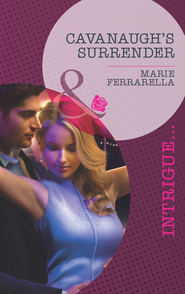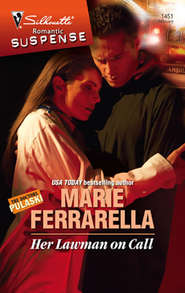По всем вопросам обращайтесь на: info@litportal.ru
(©) 2003-2025.
✖
Ten Years Later...
Автор
Год написания книги
2019
Настройки чтения
Размер шрифта
Высота строк
Поля
“To suspect is one thing—we all know no one lives forever—but to suddenly come up against that jarring fact is quite another.” She watched Barbara expectantly, throwing the ball back into her court.
Barbara came to the only conclusion she could. “You want me to tell Sebastian I’m dying?” Even as she said it, it sounded surreal.
“Not dying, Barbara,” Maizie corrected gently. “You’re going to tell your son that you had ‘an episode.’”
It still didn’t make any sense. “An episode? An episode of what?”
“Well, definitely not an episode of NCIS: Los Angeles,” Maizie told her with a patient smile. “If I remember correctly, Bedford High is celebrating a graduating class’s tenth reunion in ten days, right?”
That her friend had this sort of information at her fingertips caught Barbara off guard. She knew that Maizie’s daughter hadn’t gone to that school and knew of no reason why the woman should be aware that the high school was throwing another reunion party.
“How do you know?”
“How do I know that?” Maizie guessed. She loved being on top of things. “It just so happens that Theresa Manetti was talking about landing the catering assignment for that party just the other day. But never mind that for now. You just call that son of yours and tell him that you don’t want to alarm him but that you might have had a minor stroke, and that you’d really rather not put off seeing him, ‘just in case.’”
“But I’ll be lying to Sebastian and that’s a bad lie,” Barbara protested uncomfortably.
Maizie looked at her innocently. “Then you do want to put off seeing him?”
“No, of course not. That part’s true enough, but I haven’t had a stroke, light or otherwise,” Barbara underscored.
Maizie quoted a statistic. “Did you know that, according to a report I recently read, some people actually have strokes and never realize it?”
“No, I didn’t kn—” Barbara held the information highly suspect. “Maizie, are you stretching the truth?”
“No, not stretching, Barbara, but you of all people must know that communication is all about how you use your words. It’s not what you say but how you say it,” she told the other woman with a broad smile. “You have to be ruthless if you want your son to come home.”
Barbara still seemed uncomfortable about the untruth. “I don’t know, Maizie….”
“You don’t know if you want to see your son happily married and starting a family?” Maizie asked.
“No, of course I do,” Barbara said with feeling. And got no further.
Maizie could feel her adrenaline beginning to surge. She loved a challenge—and this had the makings of a really good one.
“Good. Then let me look into a few things and I’ll get right back to you. With the reunion so close, we don’t have that much time. In the meanwhile, you get that son of yours on the phone and tell him that you really want to see him now. That you’d rather not wait until Christmas—just in case. Understood?”
Barbara nodded. “Understood.” She only hoped that, in the long run, Sebastian would find it in his heart to forgive her.
Chapter One
Sebastian Hunter felt exhausted as he and the three hundred and twelve other passengers packed closely around him ended their eleven-and-a-half-hour international flight by finally getting off the plane at LAX.
Concerned ever since he’d gotten off the phone with his mother a scant two days ago, he’d been far too wired even to catnap on the flight, which had covered more than five thousand miles and had taken him from the heart of Tokyo to Los Angeles.
It didn’t help matters any that there was a sixteen-hour time difference between the two cities, not to mention that he felt as if he’d been traveling backward. He’d left Tokyo early on Saturday morning only to arrive in Los Angeles late Friday night, which technically made it the night before.
And he wasn’t done yet.
There was still customs to go through, despite the fact that he had brought nothing with him to declare. He’d packed hastily, informed his employer of the family emergency that necessitated his presence and arranged for a leave of absence. And now, perilously close to fraying his very last nerve—because airport security had the passengers as well as its staff on edge—he was forced to pretend he was cool, calm and collected. Otherwise, if he allowed any of the tension he was feeling to show, he might just find himself detained far longer than it would take to queue up for a random search. Tense passengers were regarded with suspicion.
He struggled to curb his impatience, although he was losing the battle.
C’mon, c’mon, how long are you going to spend going through her underwear? he wondered irritably as the customs agent rifled through a young woman’s suitcase.
The process seemed to take forever. Where were Dorothy’s ruby-red slippers when you needed them, Sebastian thought darkly.
The phrase echoed in his brain, startling him. God, he had to really be punchy if he was thinking about donning the fairy-tale footwear just to get him home.
His mind was going—and that was in part thanks to his lack of sleep.
But he wasn’t in a hurry because of fatigue. He was in a hurry because, for the first time in his life, at the age of twenty-nine, he had become acutely aware of mortality.
Not his own. The thought of not being around someday didn’t bother him in the slightest. What would be would be, as his mother always liked to say.
However, somewhere in the back of his mind, he’d grown comfortable with the concept of always having his mother around. His image of her had stabilized somewhere between what she’d looked like when he’d last seen her and a little older than an actress she had always admired, Barbara Stanwyck, playing the matriarch of a large family. To him his mother was—and always had been—proud, determined and incredibly capable.
He knew the image wasn’t eternal and certainly not realistic, but he couldn’t entertain the idea that his mother would someday decline and eventually cease to be. Nor did he want to.
He would have traded in his soul to be able to break into a run, make time stand still and miraculously appear at her side the moment he hung up the phone, ending the unexpected, unnerving call he’d received from her.
And now it seemed as if it had been forever before Sebastian was finally standing outside the terminal where he had deplaned, signaling to the closest taxi driver that he needed a ride to get to his final destination.
He hoped, because the hour was so late, that for once he would be spared having to deal with an infamous Los Angeles traffic jam. But it was also Friday night, which meant that everyone was out on the road.
Being as sprawled out as Los Angeles was, nothing was ever close by and thus necessitated obligatory travel from one point to the next, which in turn, like as not, resulted in gridlock.
“Business or pleasure?” the gypsy cabdriver asked him as they found themselves inching along the San Diego Freeway.
Preoccupied, trying not to worry about his mother, Sebastian barely heard the question. Looking up, his eyes met the driver’s in the rearview mirror. “What?”
“Are you here on business or pleasure?” the man repeated, looking to kill some time by striking up a conversation.
“Neither.”
How did you categorize flying halfway around the world to ascertain whether or not your only living relative, the mother you loved, would be around to welcome in another year? It still felt very surreal to him.
“Oh,” the driver muttered in response, obviously taking the answer to mean that his passenger didn’t want to be communicative.
Sebastian thought of saying something inane to show the driver that he wasn’t trying to be rude, but decided if he did that, it might leave him open to an onslaught of conversation. He allowed the silence within the vehicle to continue by default.
Outside the gypsy cab, the typical sounds of engines, horns and vehicles whose drivers were impatient to reach their destinations echoed through the night air like a bad symphony.
Sebastian tried to relax.
He couldn’t.
Despite the fact that the house in Bedford where he had grown up was located only forty-five miles from the airport, it took him over two hours to reach it. But eventually, Sebastian could finally make out the silhouette of the familiar two-story building.











